CONTACTAbout UsCAREER OPPORTUNITIESADVERTISE WITH USPRIVACY POLICYPRIVACY PREFERENCESTERMS OF USELEGAL NOTICE
© 2025 Equal Entertainment LLC.
All Rights reserved
All Rights reserved
By continuing to use our site, you agree to our Privacy Policy and Terms of Use.
We need your help
Your support makes The Advocate's original LGBTQ+ reporting possible. Become a member today to help us continue this work.
Your support makes The Advocate's original LGBTQ+ reporting possible. Become a member today to help us continue this work.
If President Obama hoped the Department of Justice brief that surfaced earlier this week defending "don't ask, don't tell" was an April fool's joke, he was probably sorely disappointed.
When I saw the DOJ brief, the first thing that sprang to mind was the lead of a New York Times article written just after the State of the Union suggesting that Obama decided to end the gay ban specifically so he wouldn't have to defend it in court.
"President Obama and top Pentagon officials met repeatedly over the past year about repealing 'don't ask, don't tell,' the law that bans openly gay members of the military," read the January 31 piece. "But it was in Oval Office strategy sessions to review court cases challenging the ban -- ones that could reach the Supreme Court -- that Mr. Obama faced the fact that if he did not change the policy, his administration would be forced to defend publicly the constitutionality of a law he had long opposed."
Given this week's developments, it's a particularly fascinating account, which made me wonder if the president was as blindsided by this latest Justice installment as he reportedly was by the infamous DOMA brief from last year.
Since I'm not a lawyer, I consulted several to see what they thought of the DOJ defense in this case, Log Cabin Republicans v. U.S.A. And while it's true that Justice does not absolutely have to defend the constitutionality of a law, it's also true that not doing so is extremely rare. Although Obama has said DADT is bad policy and should be repealed, to my knowledge, he has never proclaimed it unconstitutional. So instead of examining whether DOJ should be defending the law, I was more interested in how the department defended it.
Some legal scholars like Dale Carpenter, the Earl R. Larson professor of civil rights and civil liberties law at the University of Minnesota, found the brief less deleterious than last year's initial DOMA defense in the Smelt case.
"As compared to the DOJ's truly offensive brief defending DOMA last summer, which really did go out of its way to insult gays and lesbians and to come up with new rationales for discrimination, this DADT brief is almost as constrained rhetorically and substantively as it could have been consistent with a constitutional defense of the policy," said Carpenter.
While many activists have taken issue with the DOJ attorneys' use of Colin Powell's 17-year-old testimony to make their point, Carpenter thought it was perfectly reasonable given that they were making a "rational basis" case for the law.
"As my old law professor liked to say, the rational basis test means that a law is constitutional as long as some fool can come up with a bad reason for a stupid policy," Carpenter said. "Under this test, it really does not matter that General Powell (or anybody else) has abandoned his earlier views on DADT."
But Diane Mazur, co-legal director at the Palm Center, a think tank on sexual minorities in the military, found the brief extremely troubling on several levels, even calling it borderline unethical because it misrepresented the deposition of two Palm Center witnesses.
"Usually, in a summary judgment brief you are trying to explain to the
court that the parties agree about all of the facts, and the only
question at hand is what is the legal significance of those facts,"
explained Mazur, a law professor at the University of Florida. "If you start playing around with what the facts are at that
point, there's a serious problem."
According to Nathaniel Frank, one of the Palm Center witnesses and a pro-repeal advocate, DOJ lawyers twisted his
testimony to
make it appear as if he agreed with the facts being presented by the
government.
In the brief, for instance, DOJ lawyers argued that
Frank said the privacy concerns of soldiers provide a legitimate
rational basis for the DADT policy.
But Frank said that
although he was not willing to categorize a person's individual privacy
concerns as irrational, "nowhere do I say that those feelings constitute
a rational basis to discriminate against gay people."
Mazur viewed
the misrepresentation as egregious. There are certainly points in a
case, she said, when it's appropriate for attorneys to interpret the
testimony of people through more of an advocacy lens. But the summary
judgment stage is the wrong platform for that.
"It is outrageous
in that setting for a lawyer to try to get a motion of summary judgment
granted by shading or misrepresenting testimony," she said.
Beyond
the ethical considerations, Mazur felt the brief was a definite step
backward for LGBT equality by virtue of the fact that it minimizes the
findings of landmark LGBT cases such as Lawrence v. Texas, which
overturned sodomy laws nationwide.
"In taking that approach, the
administration is going on record saying that Lawrence v. Texas
isn't really saying much about the civil rights of gay people," she
said.
Ultimately, the Log Cabin suit may not be the case LGBT advocates want
to go before the Supreme Court, she said, "but the way the Obama
administration is trying to make it go away is causing a lot of
trouble."
No matter which way you slice it, the Log Cabin brief
is a significant retreat from the advances made in Witt v.
U.S. Dept. of the Air Force, in which DOJ let stand a ruling that shifted
the burden of proof to the government on whether gay soldiers actually
compromise unit cohesion.
"If you were taking the Obama
administration at its word that they are moving toward repeal, Witt is
actually a perfect intermediate step toward getting there," said Mazur.
"The government can no longer rely on this blanket assumption that the
presence of gay people is disruptive. It really exposes the inaccuracy
of the original assumption."
The difference between DOJ's
approach to Witt and the brief filed this week feels borderline
schizophrenic, and what exactly motivated the deviation mystifies me.
Even though the Civil Division of DOJ is responsible for defending legal
challenges to the U.S. Constitution, it does raise the question, What
exactly is the department's Civil Rights Division doing? Did Thomas
Perez, head of the Civil Rights Division, have the opportunity to weigh
in with the head of the Civil Division, Tony West, who was lead attorney
listed on both the DOMA and Log Cabin brief?
During a DOJ
briefing last December, I asked Perez whether he interfaces with West on
civil rights cases important to LGBT people, such as DOMA and
DADT.
"The meeting I had just before this was with Tony West,"
he said. "We have regular coordination meetings with the Civil Division
to ensure that we are frequently discussing matters of mutual interest
between the Civil Division and the Civil Rights Division. So the Civil
Division plays the lead role in the defense of those cases, but we
certainly have conversations with them."
Perez added that the
Civil Division had been "excellent at being inclusive in terms of
ensuring that everybody's viewpoint" is heard within the department. I
wonder if his answer would be the same this week.
One thing is
clear: Obama's Justice Department is still vigorously defending a law
that he, Defense secretary Gates, and Joint Chiefs chair Adm. Mullen have all said must go, while the White
House doesn't seem to be in much of a hurry to overturn it based on
remarks from Robert Gibbs this week.
As
Richard Socarides, former LGBT adviser to President Bill Clinton, noted, "I
think it's an outrage that they've got the best and brightest lawyers in
Washington working overtime to defend the law when nobody at the White
House has an actual legislative plan to repeal it this year."
From our Sponsors
Most Popular
Bizarre Epstein files reference to Trump, Putin, and oral sex with ‘Bubba’ draws scrutiny in Congress
November 14 2025 4:08 PM
True
Jeffrey Epstein’s brother says the ‘Bubba’ mentioned in Trump oral sex email is not Bill Clinton
November 16 2025 9:15 AM
True
Watch Now: Pride Today
Latest Stories
Joe Biden says MAGA Republicans want to make LGBTQ+ people ‘into something scary’
December 05 2025 8:20 PM
'Finding Prince Charming's Chad Spodick dies at 42
December 05 2025 3:45 PM
Supreme Court to hear case on Trump order limiting birthright citizenship
December 05 2025 3:01 PM
Women gamers boycott global esports tournament over trans ban
December 05 2025 2:55 PM
Anti-LGBTQ+ hate crimes reached record-highs last year in this gay haven
December 05 2025 1:16 PM
Three lesbian attorneys general beating back Trumpism in court warn of marriage equality’s peril
December 05 2025 12:07 PM
Trump DOJ rolls back policies protecting LGBTQ+ inmates from sexual violence
December 05 2025 11:12 AM
Georgia law banning gender-affirming care for trans inmates struck down
December 05 2025 9:40 AM








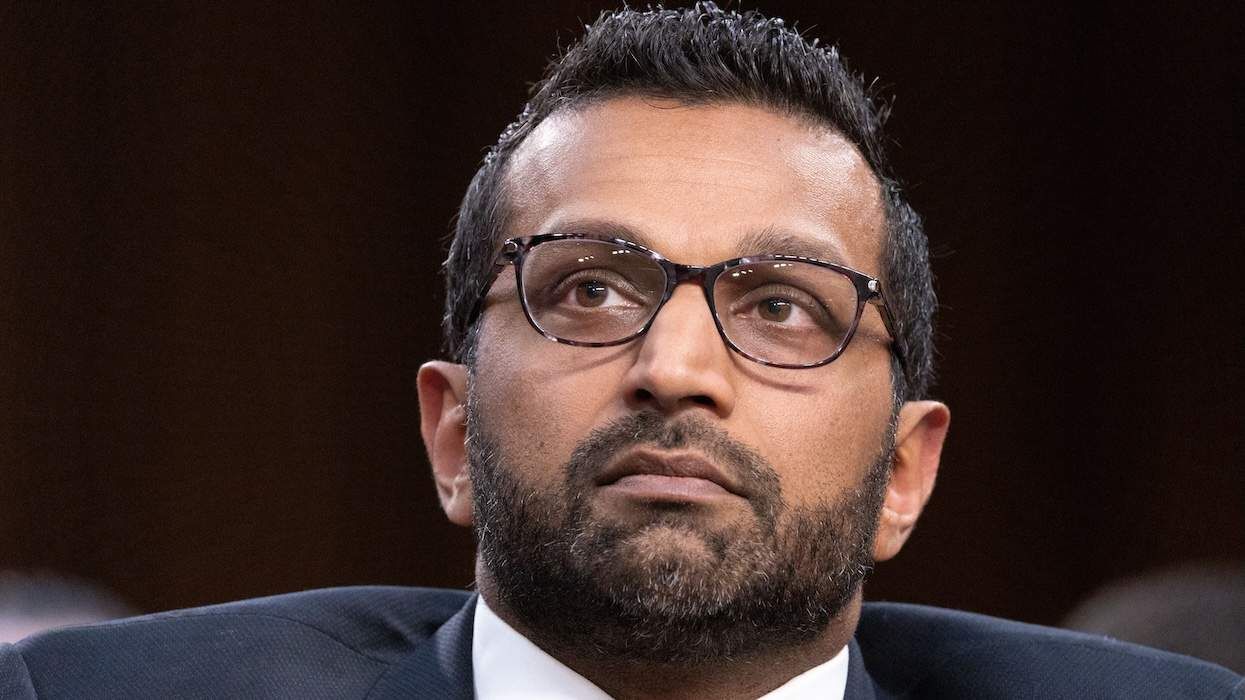
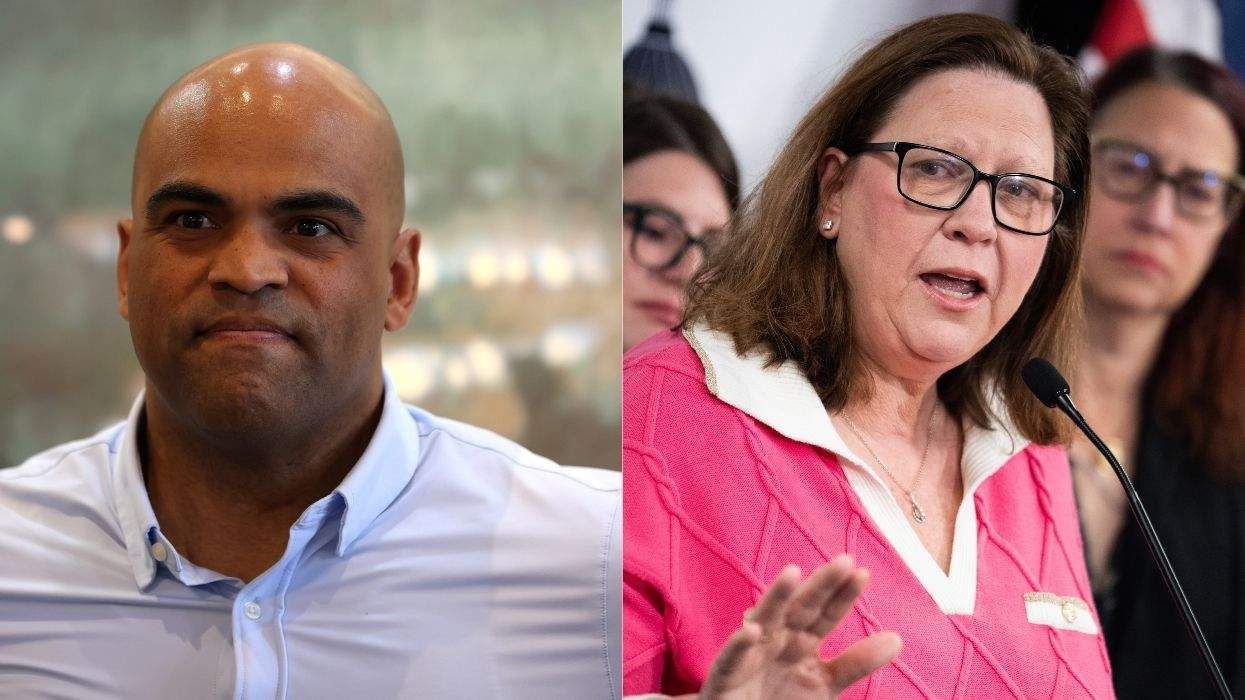


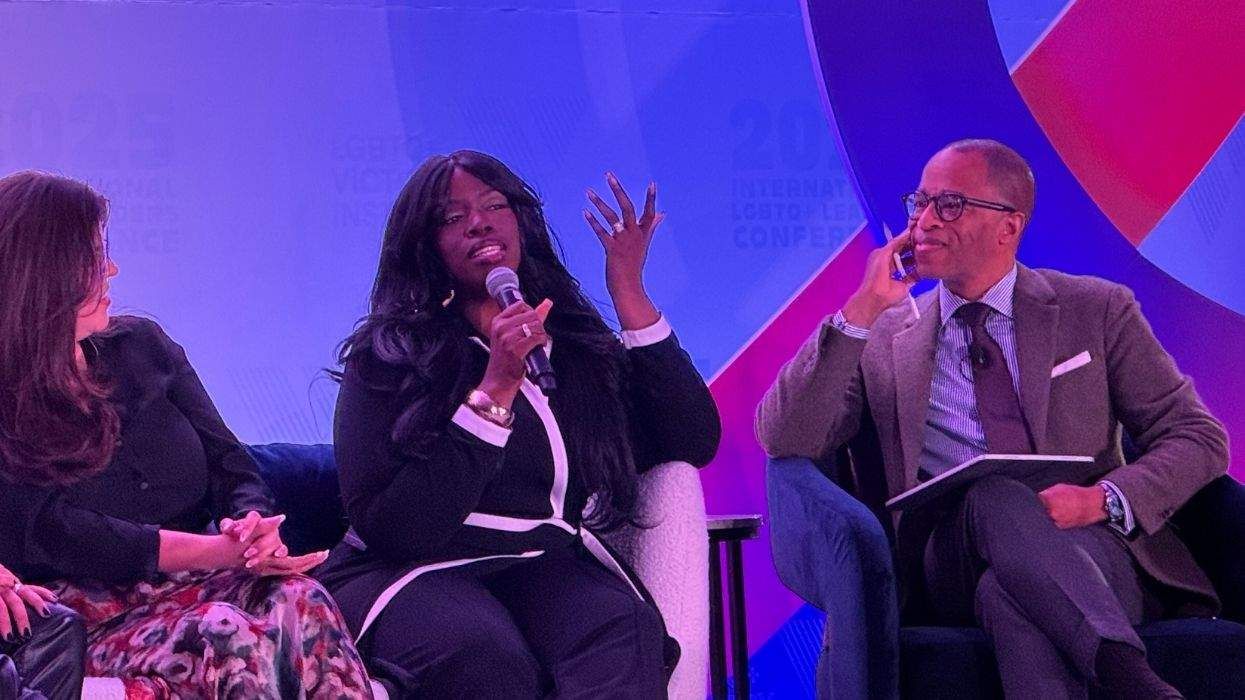



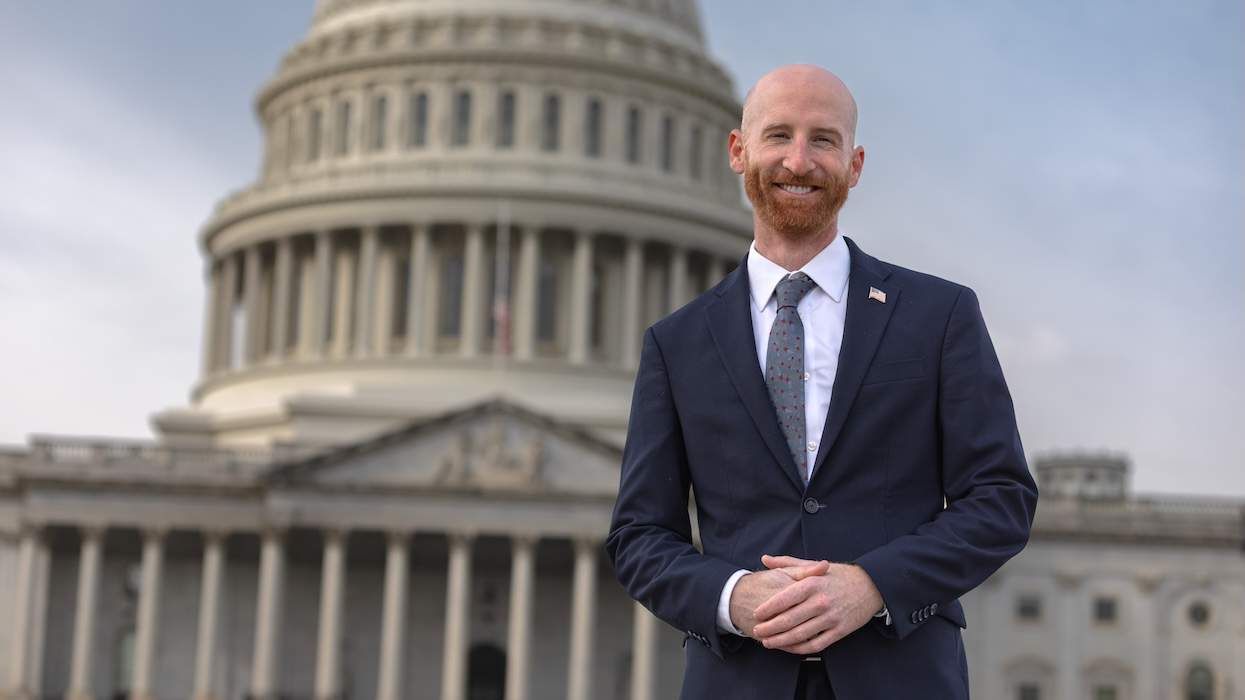
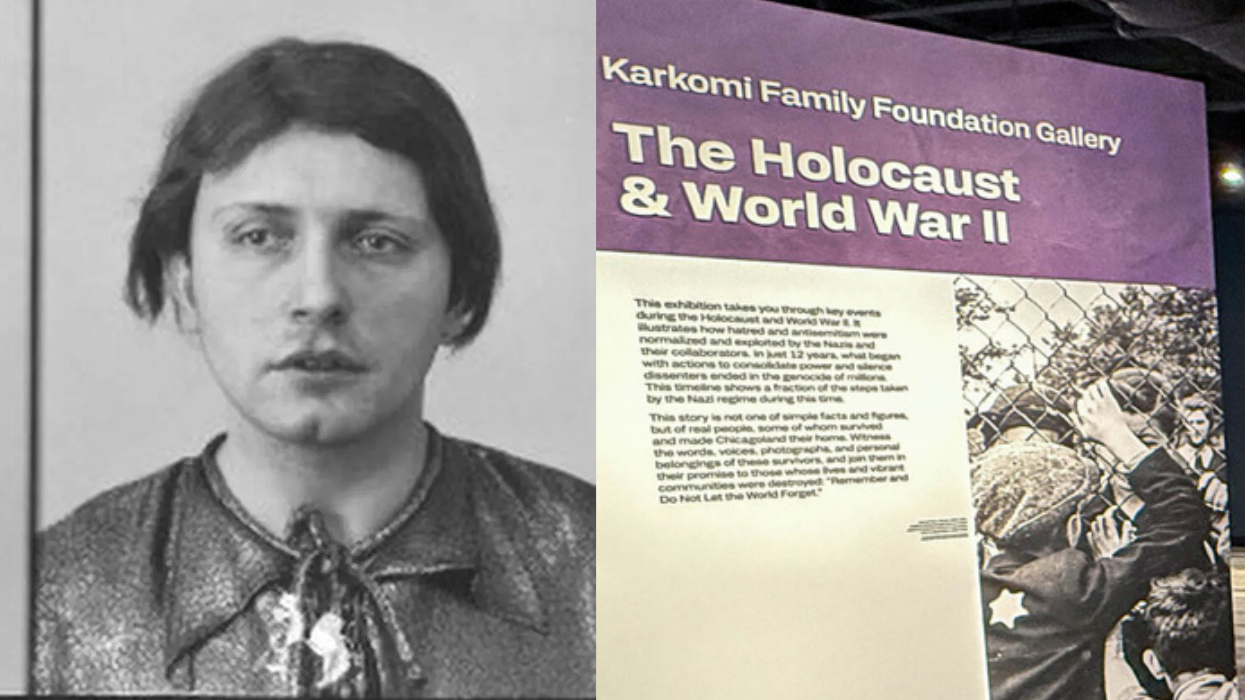


















































Charlie Kirk DID say stoning gay people was the 'perfect law' — and these other heinous quotes